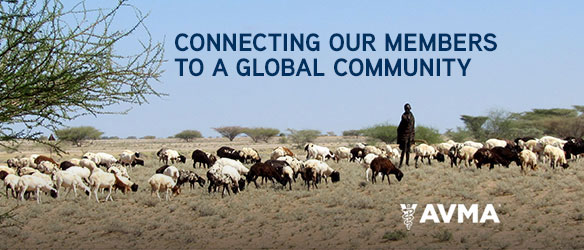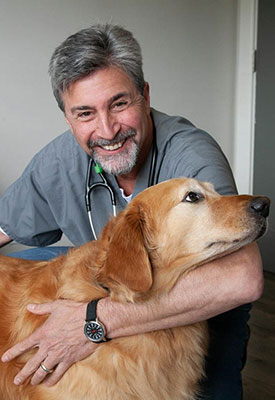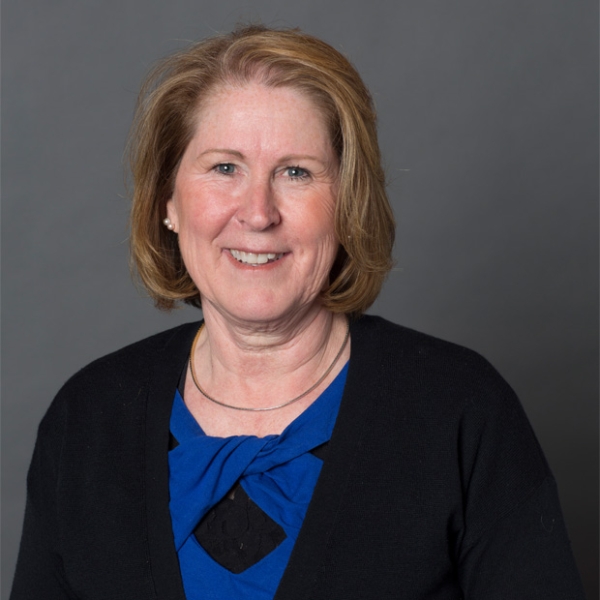Building relationships with our international colleagues
President’s Column: Dr. John de Jong
As the proud son of two Dutch immigrants and as someone who lived in Puerto Rico for several years beginning at age 8, I began to appreciate early on the significance and the gifts of different cultures. My appreciation has grown even stronger over the past couple of years as an AVMA officer, as I have had the privilege of traveling internationally to help ensure that the U.S. veterinary profession’s voice is heard on a global level.
It is through these efforts that our understanding of the perspectives of people living in other parts of the world continually expands, as does my desire to learn even more about the issues they face. Serving this great profession as AVMA president reinforces my belief in the tremendous opportunity that exists in bringing diverse people and perspectives together to help accomplish the common objectives of growing the veterinary profession and making life better for the animals and people we serve.
The AVMA is highly respected as a global leader in veterinary medicine. Our international colleagues are eager to work with and learn from us, just as we are eager to work with and learn from them. In this increasingly shrinking global community, the borders that separate us are simply lines on a map. We share common diseases. We face common concerns about issues such as antimicrobial resistance, and food safety and security. We have mutual interests in animal welfare. We share a desire to ensure veterinarians’ wellbeing. And we all have pledged to use our scientific knowledge and skills for the benefit of society.
Through the tremendous work of the AVMA’s Committee on International Veterinary Affairs, which advises the AVMA Board of Directors to help the association achieve its commitment to global outreach, the AVMA has been better able to focus its international work and expand its presence across the world.
 For example, we continue to work to strengthen our relationships with veterinarians and veterinary associations in places like Australia, Europe, Canada, and Mexico. In addition, last year, I was humbled to have been, to the best of our knowledge, the first AVMA president to speak at the Federation of Asian Veterinary Associations Congress. The FAVA comprises 27 countries across the Asian rim and Middle East. Our presence at this meeting, including the opportunity to address the entire congress, was an invaluable opportunity to represent your interests on the world stage. It provided us the chance to exchange ideas and share our thoughts about the veterinary profession beyond national borders, and build relationships with even more national veterinary associations. We were able to share perspectives and help each other grow and learn. This not only strengthens animal and human health worldwide, but ultimately allows us to better serve our members.
For example, we continue to work to strengthen our relationships with veterinarians and veterinary associations in places like Australia, Europe, Canada, and Mexico. In addition, last year, I was humbled to have been, to the best of our knowledge, the first AVMA president to speak at the Federation of Asian Veterinary Associations Congress. The FAVA comprises 27 countries across the Asian rim and Middle East. Our presence at this meeting, including the opportunity to address the entire congress, was an invaluable opportunity to represent your interests on the world stage. It provided us the chance to exchange ideas and share our thoughts about the veterinary profession beyond national borders, and build relationships with even more national veterinary associations. We were able to share perspectives and help each other grow and learn. This not only strengthens animal and human health worldwide, but ultimately allows us to better serve our members.
Dr. José Arce, CIVA chair and a member of the AVMA Board of Directors, offers the following perspective: “It is of the utmost importance that we are involved internationally so we can have an influence in the development of global policies related to veterinary medicine and in promoting quality assurance in veterinary medical education. The AVMA’s global engagement also provides the opportunity to develop strategic partnerships that can create and enhance global opportunities for AVMA and SAVMA members. Many of the issues the AVMA is currently working on, such as antimicrobial resistance, animal welfare, disaster preparedness and response, and the opioid crisis, have an international component, and, through our global outreach, we can identify initiatives that are tackling these issues and incorporate that information into AVMA policies and programs.”
As the AVMA works to collectively address the challenges and opportunities facing veterinary medicine at home and abroad, we must continue to have a seat at the international table. We must maintain the coalitions we have built with our international allies and build new relationships with our veterinary colleagues in other parts of the world. Doing so will give us a larger voice so we can more effectively advocate across the world for the importance of veterinary medicine to society, which will, in turn, enhance animal, human, and environmental health.




Comments
Add New Comment